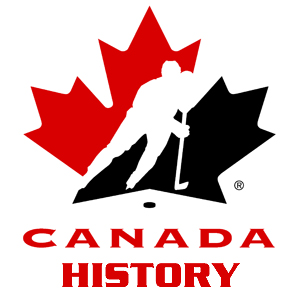On Canadian soil, in sudden death overtime, Sidney Crosby took the feed from Jarome Iginla, tied up in the corner, and snapped the puck through a small sliver of daylight that U.S. goalie Ryan Miller failed to block.
The passion and celebration that ensued over the “Golden Goal” at the Winter Olympics in 2010 was felt from the western shore of Vancouver Island, B.C., to Cape Spear, Nfld.
It’s one of eight gold medals that Canada has earned since ice hockey was introduced at the 1920 Games in Antwerp, Belgium.
The first gold-medal Canadian team, Winnipeg Falcons, won 2–0 over the U.S. in 1920. Members of that team were Wally Byron, Bobby Benson, Konnie Johannesson, Frank Fredrickson, Chris Fridfinnsson, Mike Goodman, Slim Halderson, Allan “Huck” Woodman and coach Gordon Sigurjonsson.
Canada would go on to win three more consecutive medals, with the squads Toronto Granites (a group of ex-servicemen) in 1924 at Chamonix, France; University of Toronto Graduates in 1928 at St. Moritz, Switzerland; and The Winnipegs in 1932 at Lake Placid, U.S.
Still during the 90 years that hockey has taken to the world stage there have been moments of icy conflict off the rink.
The Canucks would claim two more golds in St. Moritz (1948) and Oslo (1952) before the Soviet Union began their climb to the top of the world podium after beating Canada in the World Championship in 1954.
From 1956 to 1998, Canada would not see another Olympic gold medal. During that time, Hockey Canada would argue for the use of professional athletes to compete at the Olympic level.
In 1970, IOC president Avery Brundage was opposed to having pros and amateurs competing against each other. In response the Canadians not only declined to host the IIHF World Championship in Winnipeg and Montreal but withdrew from international hockey.
In all Canada forfeited seven world tournaments and did not take part in the 1972 Sapporo, Japan and 1976 Innsbruck, Switzerland Winter Olympics.
The reason was simple: fans and administrators could not understand why the Canadian team could not suit up former NHLers while the Russian and Czechoslovakian teams were allowed to dress full-time professionals.
Thus the famous 1972 Summit Series between the Soviet Union and an NHL-inclusive Canadian squad came about, followed four years later by the Canada Cup.
Alan Eagleson, the NHL Players Association president at that time, was in charge of forming the roster of the ’72, which originally had Bobby Orr on the blueline but he could not play due to a knee injury. The Golden Jet, Bobby Hull, was ruled ineligible because he had defected to the World Hockey Association.
Canada’s silent battle with Russia was played out in a literal Cold War. But it would leave an indelible imprint on the nation’s psyche — in particular, Toronto Maple Leaf Paul Henderson’s game-winner in overtime.
With 34 seconds left in the game, Henderson took Phil Esposito’s rebound and shot it past Vladislav Tretiak. It broke the 5–5 tie and won the Red and White the series 4–3–1.
Another former Maple Leaf would play hero in overtime during the 1976 Canada Cup gold medal game. Darryl Sittler received a lead pass from Marcel Dionne, faked a shot, drawing Czechoslovakian goalie Vladimir Dzurilla out of his net, and fired into the empty cage.
Canada would return to the Olympics in 1980 but finished sixth at Lake Placid. The nation visited the podium, but only on the second step in Albertville, France. Then in 1994 another silver was won in Lillehammer, Norway.
Women’s hockey was introduced to the Olympics in 1998 at Nagano, Japan. The ladies would win silver, while the men, replete with NHLers finished a disappointing sixth.
At Salt Lake City in 2002, the men fared much better winning gold over the United States, 5–2. The women would claim their first gold, beating the U.S. 3–2.
At Turin, Italy, in 2006 the Canadian men’s team displayed one of their worst finishes: seventh. They lost to both Finland (5–0) and Switzerland (2–0) in the round robin. The women however didn’t disappoint, winning their second straight gold.
Which brings us back to Vancouver in 2010, where both the men and women triumphed, putting Canada back atop the Olympic stage.
Sponsored by The Canadian Experience and Maple Leaf Sports + Entertainment, “Canada’s Hockey Experience: The Sport of a Country” is a unique, 20-week online series on the history of hockey.

